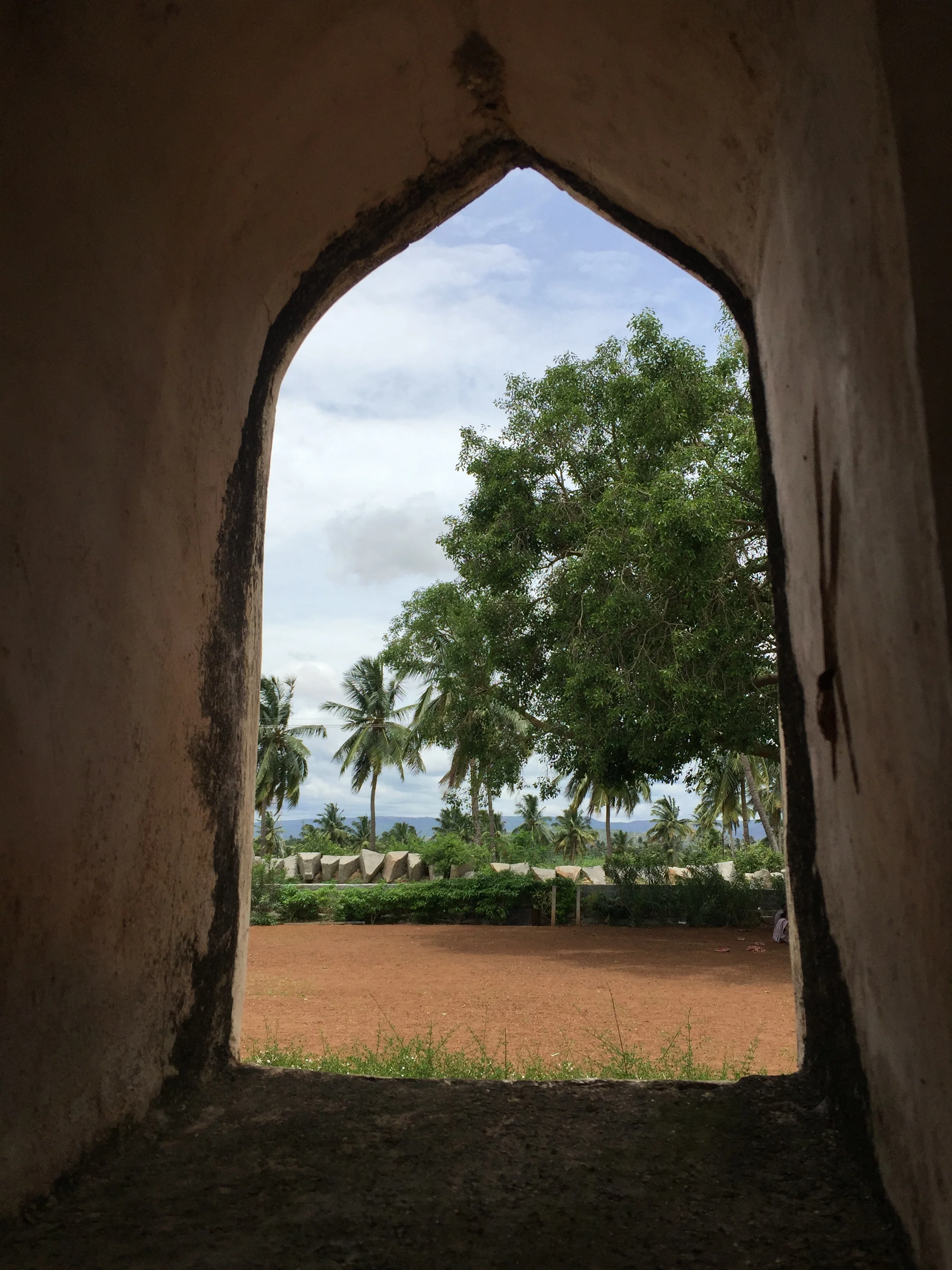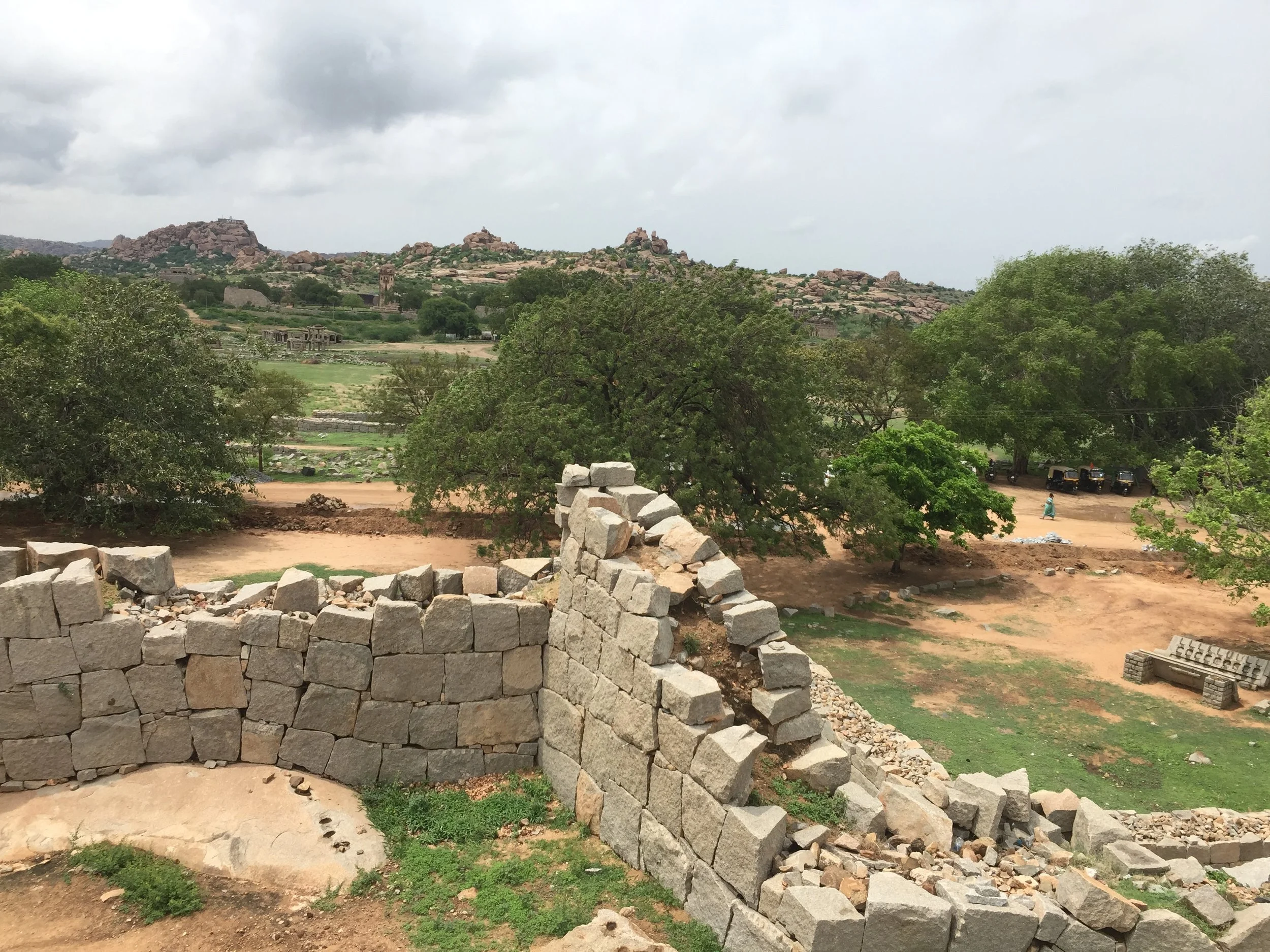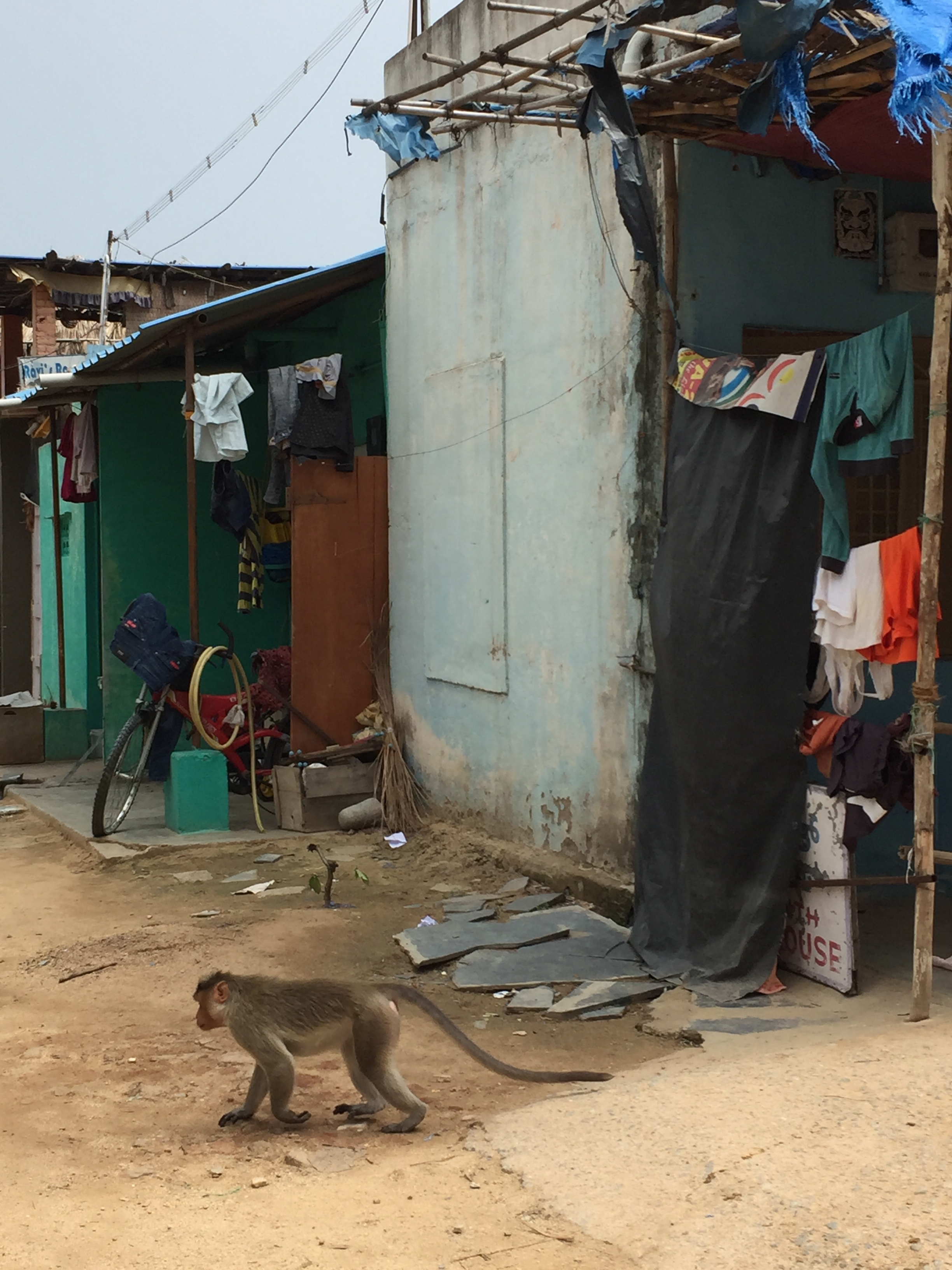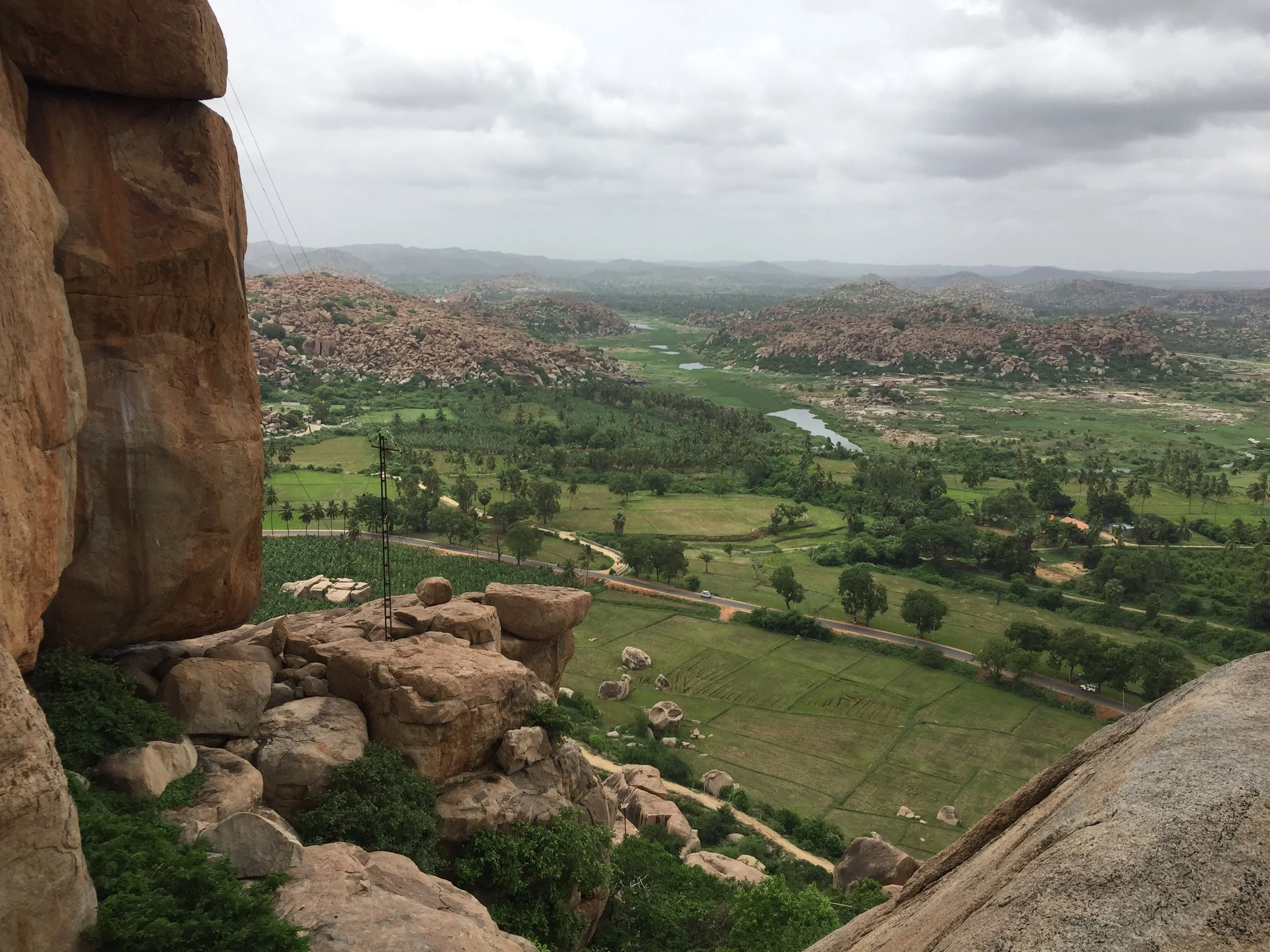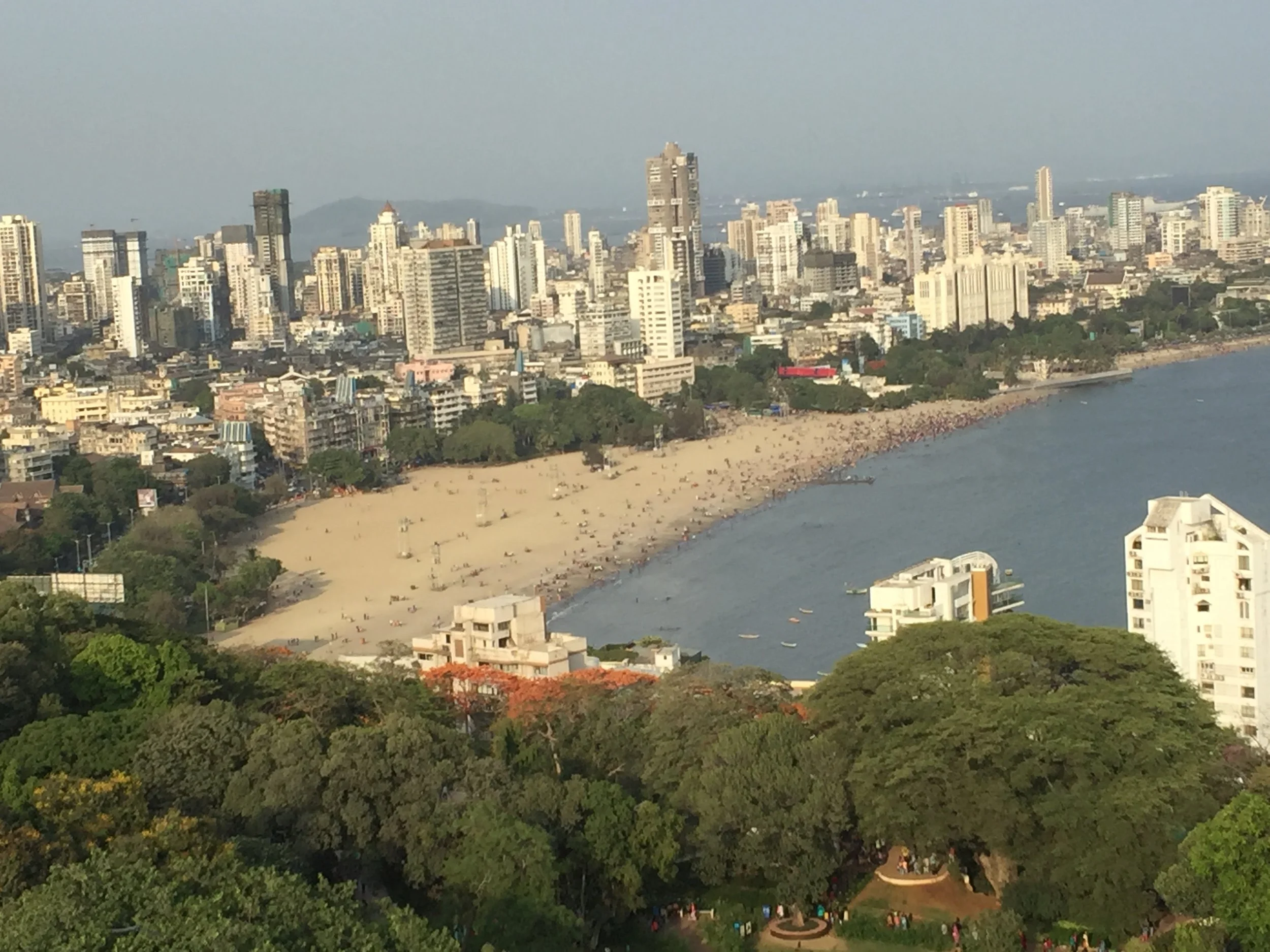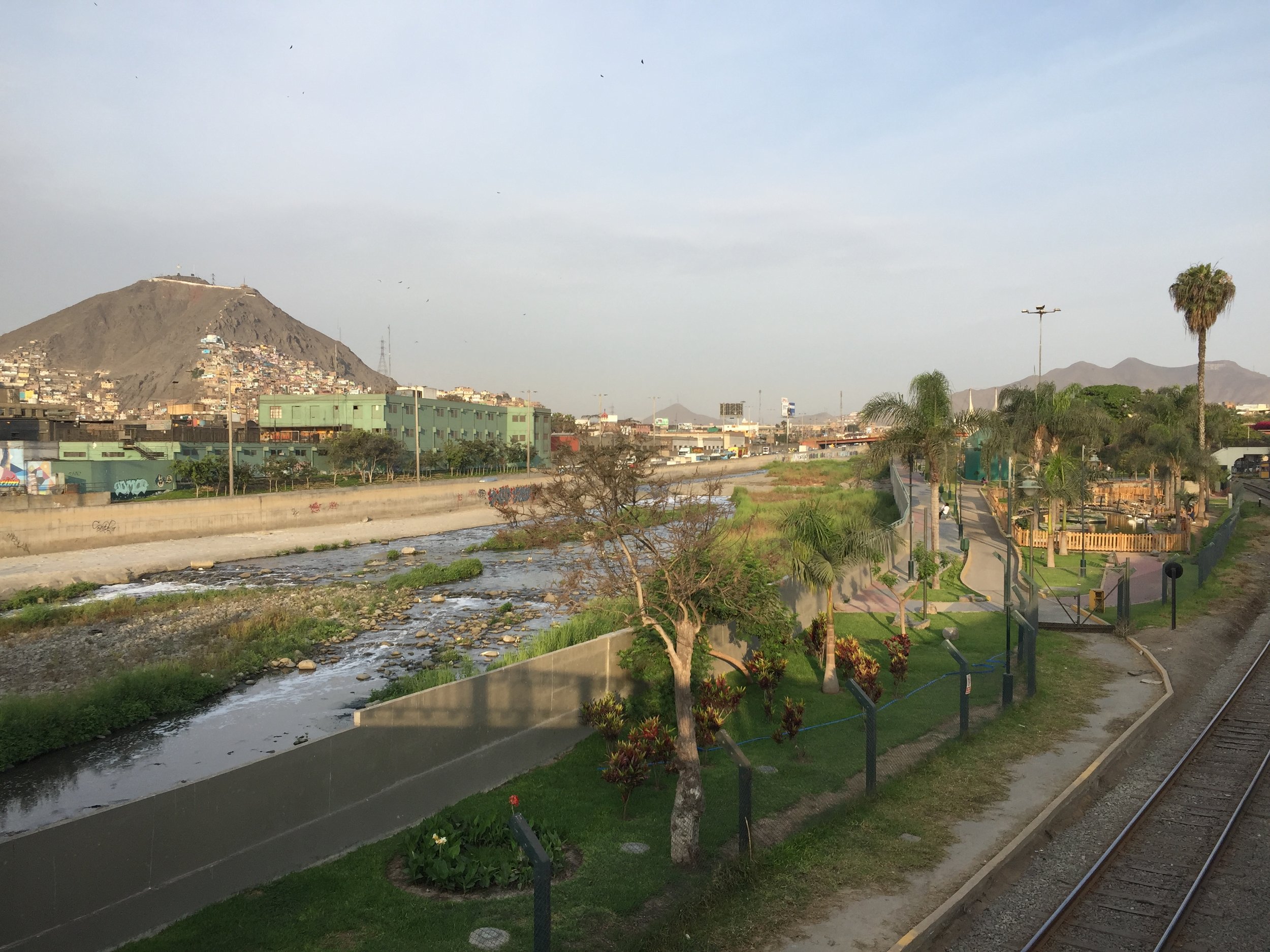Hampi: An Unearthly Reality
We intended to go to Kerala. Primarily, because we heard it's simply where you go. Plus everyone raved about the serene, tropical coastline. We were leaving Mumbai at the end of the first week in June, which coincided with the news that Kerala was on high alert due to the Nipah virus. The infectious disease is fatal and the we later learned the area was quarantined. So, we skipped Kerala.
Ayesha's sister had been to Hampi and highly recommended it.
She described it as having a hippie vibe, but also including ruins that hold a tremendous history.
Hampi is largely known for lush fields and towering boulders precariously perched.
We found there's so much more to it.
The ruins themselves are impressive. The Group of Monuments at Hampi is a UNESCO World Heritage site, becoming the capital of the Hindu Vijayanagara Empire dating back to the 14th century.
By 1500 CE, the empire became the world's second-largest medieval-era city., following Beijing.
It was also likely India's most affluent city at the time.
Hampi's remaining ruins spread over 16 square miles.
Honestly, we imagined it to be a bit like walking on mars. The burnt orange ground was so remote, so vast.
Almost supernatural.
Within the boulder fields are 1,600 surviving remains of the last great Hindu kingdom in South India.
Including forts, temples, shrines, and sacred complexes with pillared halls.
So while visitors have long been absorbed by the overwhelming history, the town of Hampi holds it's own allure.
The Hampi Bazaar, near the Virupaksha Temple, is now a village with the most basic infrastructure for visitors.
It's crammed with inexpensive hostels and trinket stalls.
The bazaar is small, but there's still several alleyways to explore.
Virupapur Gadde is the area across the Tungabhadra river, in which you can take a small boat near the Virupaksha Temple.
Virupapur Gadde is known for its extreme laidback mentality.
We split our time. Three nights exploring the ruins and three nights on the other side. The two experiences could not be more different.
We splurged on the Clarks Inn Hampi on the side by the ruins.
The aircon, plush bedding, occasional hot water, and extensive breakfast spread was living in luxury. On the other side, we had a far more...trying experience. Although the Clarks Inn felt very comfortable, we were quickly grounded by our surroundings.
The local town felt incredibly distant, as it was difficult to imagine such a sizable tourist attraction within walking distance.
Despite the underdeveloped streets, there was a tremendous beauty in the architecture.
And in the most general sense, the way of life. There seemed to be an extreme dichotomy between old and new.
Women's dress was far more conservative, and I felt a compulsion to cover more than I did in Mumbai.
Cows were rampant, seemingly everywhere in mass herds.
And it was unclear who and if they had an owner.
But it was the colors that were so awe-inspiring. That drew you in.
The other details faded into the background. I was captivated by the bright yellows, pinks, and soft greens.
We were staying at the opposite end of the bazaar, which granted us the opportunity to explore the more residential area.
We gleaned as much from observing the daily practices in the local villages as the distinguished ruins.
There's something to be said about diverting from the tourist circuit. Sure, it's a cliche. But in this case, we literally turned left when others turned right.
The only way to describe it, is feeling like we were really out there.
Due to the historic prevalence, we did take a more organized tour. But chose to do it by bike.
Naturally, it poured that day.
I got that windbreaker for Will in Koh Lanta for 30 cents USD
Granted, it is monsoon season. But up until our tour, ominous skies always seemed to clear up.
No such luck this time.
But it was a reprieve from the heat and we made the most of it.
We had a stellar group, with three other guys visiting from Hyderabad.
Our tour guide rode ahead on a motorcycle.
We learned that the first historical record of settlement in Hampi dates back to 1 CE.
At one point Hampi was also one of the largest trading centers of the world.
We rode by the main trading market, where spices and cotton were exchanged and purchases were made with silver and gold.
Hampi the last great Hindu Kingdom of Vijayanagar. The Dravidian temples and palaces attracted travelers between the 14th and 16th centuries.
However, Hampi was defeated by the Deccan Muslim confederacy in 1565, the city was pillaged before being abandoned.
We found it astonishing that so many flock to Angkor Wat, but why doesn't Hampi have a comparable reputation? I had never heard of Hampi before visiting.
By the end of our tour it cleared up, as we leisurely made our way.
There are so many ways to take tours, and if we're going to partake, we try to do so by bike.
Another popular option was to take a rickshaw, but I think you can absorb more on the ground.
The tour ended late afternoon, so we all decided to go to my favorite restaurant: The Mango Tree.
We frequented this lunch spot often. In fact, I think Will and I went everyday. It was clean, reliable, and really tasty. Moreover, competition was limited. We always ordered one of the curries, which came with two warm chapatis.
And their mango lassis were pretty stellar, too.
Perhaps my favorite was a site we visited was on our own accord. The Queen's Bath.
The bath was set apart from the royal area.
It epitomized the Indo-Islamic style of Vijayanagara architecture.
Yet, the interior of the bath differed from the stucco and plaster exterior.
The pillared corridors with ornate balconies surround the bath for protection.
There was an inlet water channel and a moat that ran around the structure to ensure ample fresh water.
The Group of Monuments at Hampi are remarkable. The grand architecture and impossible boulders sharply contrasted our time in Mumbai.
There were herded goats that were fairly docile. The young shepherd blasting Indian techno was a fantastic sight.
Monkeys lined handmade stone walls along the road.
And could generally be found dangling from phone lines or roaming the streets.
But this time, it wasn't the monkeys that were problematic. Or the ever-present cows.
It was the raging bulls that were the issue.
We had just checked out of the hotel, our packs were on, and we were crossing the street to get into the rickshaw. We immediately halted in our tracks when we heard people yelling. Locals threw rocks, but it was simply something we had to wait out. The bulls eventually ceased their headlock, which apparently is common practice.
Aside from the occasional turmoil, Hampi really was very peaceful.
The landscape isn't necessarily what I think of when I think of India. However, we're learning that the culture and terrain greatly differs from state to state. Cities, mountains, jungles, oceans. And thus, India's diversity lends itself to endless exploring.


